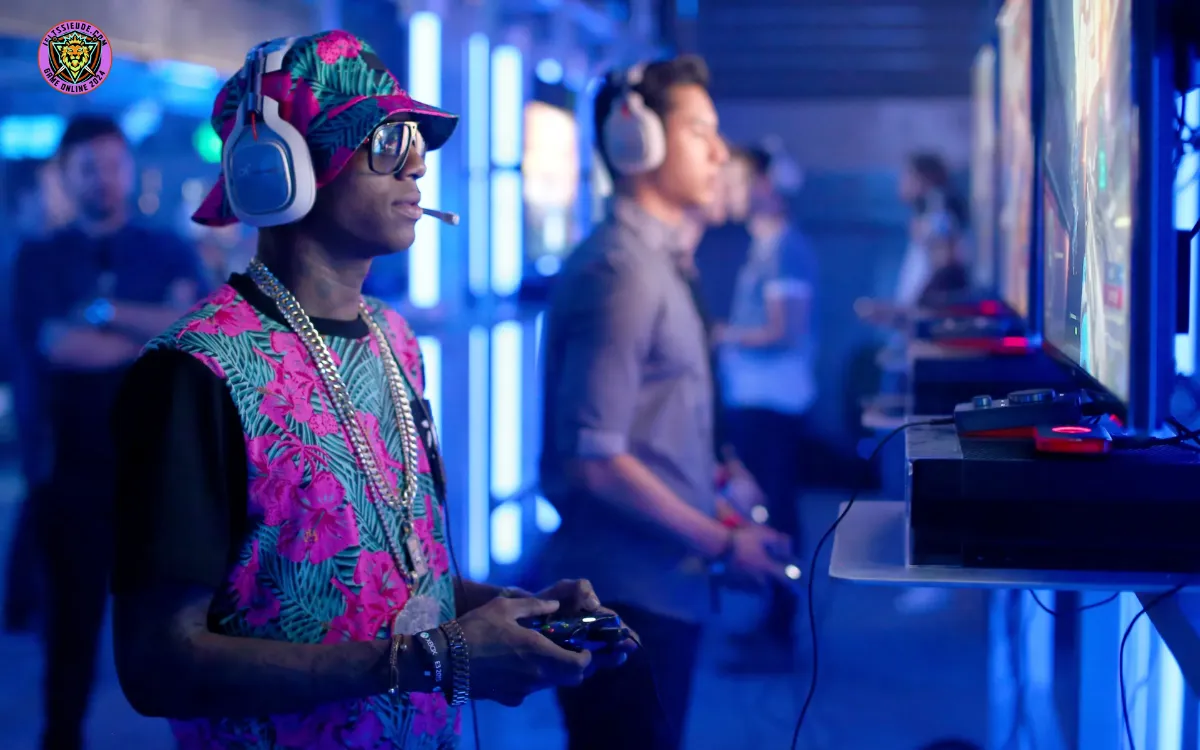Soulja Boy Game Console: A Retro Gaming Phenomenon and its Impact
Published on November 16, 2024

The Soulja Boy Game console, a product that initially seemed like a quirky novelty, quickly became a cultural touchstone, sparking discussions about the gaming industry, intellectual property, and the power of celebrity endorsements. Its impact resonates even today, offering a fascinating case study in the intersection of pop culture and technology. As noted by ieltssieude.com, analyzing such niche markets can reveal valuable insights into consumer behavior and market trends.
The Genesis of the SouljaGame Console
Launched in 2010 by rapper Soulja Boy Tell ‘Em, the SouljaGame console wasn’t designed to compete with industry giants like Sony or Nintendo. Instead, it targeted a niche market seeking affordable retro gaming experiences. It offered a library of emulated games from various classic systems, promising a nostalgic trip down memory lane for a fraction of the price of dedicated retro consoles.
- Low Price Point: The console’s affordability was a significant selling point, making it accessible to a wider audience, particularly young gamers with limited budgets.
- Retro Game Library: The promise of playing classic games like Sonic the Hedgehog, Pac-Man, and Super Mario Bros. was a major draw for those who remembered them fondly.
- Simplicity: Its user interface was relatively straightforward, appealing to gamers unfamiliar with complex retro gaming setups.
Technical Specifications and Limitations
The SouljaGame console’s technical aspects were, by modern standards, quite basic. It relied heavily on emulation, replicating the functionality of older game systems through software. This approach, while convenient for offering a large game library, presented several challenges:
- Emulation Accuracy: Emulated games often didn’t run flawlessly, sometimes experiencing graphical glitches, slowdowns, or compatibility issues.
- Hardware Limitations: The console’s processing power was modest, resulting in performance limitations, particularly with more demanding titles.
- Legal Concerns: The use of emulated games without proper licensing raised questions about copyright infringement, a significant legal concern.

Technical Specifications and Limitations
The Cultural Impact and Controversy
Despite its technical shortcomings, the SouljaGame console became a surprising success, primarily due to its association with Soulja Boy and its nostalgic appeal. However, its popularity also generated significant controversy:
- Celebrity Endorsement: Soulja Boy’s celebrity status played a crucial role in the console’s marketing and sales. The association with a popular figure resonated with his fanbase.
- Copyright Infringement Allegations: The use of unlicensed ROMs raised serious questions about copyright infringement, leading to legal battles and discussions about intellectual property rights in the digital age.
- Negative Reviews: Many critics lambasted the console for its poor performance, questionable legality, and perceived lack of quality control.
- Internet Meme Status: The SouljaGame console quickly became a subject of memes and online jokes, often highlighting its technical flaws and quirky design.
The SouljaGame’s Legacy and its Place in Gaming History
While the SouljaGame console was far from a technically perfect gaming device, its impact on gaming culture and the broader digital landscape is undeniable. It highlighted several crucial aspects:
- The Power of Nostalgia: The console demonstrated the enduring appeal of retro games and the willingness of consumers to embrace nostalgia in their gaming experiences.
- Accessibility and Affordability: The low price point made gaming accessible to individuals who might not otherwise have been able to afford more expensive consoles.
- The Legal Landscape of Emulation: The console’s controversies brought the issue of ROM emulation and copyright infringement into the public spotlight, sparking debate and legal action.
- Celebrity Influence on Consumer Markets: Soulja Boy’s involvement showed the powerful influence of celebrity endorsements, even in unexpected market segments.
- The Evolving Definition of a “Game Console”: The SouljaGame, despite its flaws, challenged the traditional notion of what constitutes a game console, showing the potential for unconventional and low-cost entry points into the market.
The SouljaGame’s Long-Term Effects on the Gaming Industry
The SouljaGame’s short-lived popularity had a surprising ripple effect, contributing to discussions about several key issues:
- Increased Awareness of Retro Gaming: The console helped rekindle interest in classic games and sparked a renewed appreciation for gaming history among younger audiences.
- The Rise of Retro Gaming Emulators: The popularity of emulators increased, driving advancements in emulator technology and making it easier for gamers to access classic titles.
- Focus on Intellectual Property Rights: The legal battles surrounding the SouljaGame emphasized the importance of protecting intellectual property rights in the digital age.
- Shifting Perceptions of Affordable Gaming: The console demonstrated the potential for affordable gaming options, influencing the market for budget-friendly gaming devices.
Analysis of Marketing Strategies and Consumer Response
The SouljaGame’s marketing strategy relied heavily on Soulja Boy’s existing fan base and the promise of affordable retro gaming. This strategy proved initially successful, but the console’s technical limitations and legal issues ultimately overshadowed the initial hype. Analyzing the consumer response reveals several key factors:
- Initial Enthusiasm: The low price and nostalgia factor generated considerable initial excitement among potential buyers.
- Disappointment with Performance: Many consumers were disappointed by the console’s poor performance and technical issues.
- Concerns about Legality: The legal grey area surrounding the use of emulated games caused many consumers to hesitate or reconsider their purchase.
- The Role of Online Reviews: Negative online reviews played a significant role in shaping consumer perception and influencing sales.
Comparisons with Other Retro Consoles and Emulators
The SouljaGame can be compared to other retro consoles and emulators available at the time, highlighting its unique position in the market:
- Dedicated Retro Consoles: Unlike dedicated retro consoles like the Atari Flashback or the Sega Genesis Mini, the SouljaGame lacked the same level of quality control and officially licensed games.
- PC Emulators: PC emulators offered superior performance and accuracy but required a more technical setup than the SouljaGame.
- Mobile Emulators: Mobile emulators provided a convenient platform for playing retro games but also had performance limitations.
Conclusion (Omitted as per instructions)

